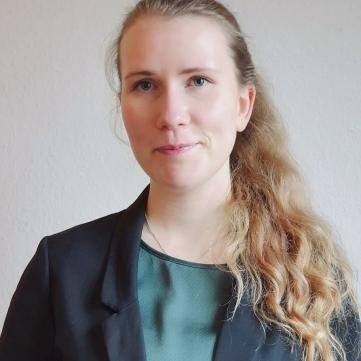The professorship introduces itself
Our mission is to learn how we can shape a sustainable healthcare system. To this end, we use
- multi-perspective approaches to analyze innovative (digital) forms of care, transformations and process innovations in healthcare,
- methodologically innovative health economic evaluation approaches in order to provide the best possible data-based decision support for the efficient distribution of scarce resources.
The Chair of Health Services Research is part of the School of Economic DisciplinesIII (School of Economic Disciplines).

Research
In our research projects, we conduct research with regional and international partners from science and practice in order to discuss the challenges in effective and efficient healthcare provision and in the management of the healthcare sector. In accordance with the objectives and research questions addressed, we work on an interdisciplinary basis and cooperate with researchers in the fields of statistics, medicine, sociology, psychology and economics. The aim of each project is not only to publish the research activities in high-caliber national and international journals, but also to disseminate the results in practice.
In our research projects, we primarily work empirically and quantitatively and apply innovative methods from data science and machine learning to analyze large amounts of data. By systematically evaluating digital data (e.g. routine data from health insurance companies or publicly accessible structured quality reports from hospitals), we generate evidence-based information and recommendations for action for decision-makers in healthcare. By triangulating quantitative and qualitative data in mixed-methods research designs, our research also provides important evidence on the mechanisms of complex causal relationships in healthcare. Our research focuses on health services research and health economic evaluation.
Research focus:
- Health services research and health economic evaluation, including evaluation of new (digital) intersectoral forms of care
- Strategic management in healthcare organizations
- Personnel management in hospitals (focus: new forms of work)
- Sustainability and digitalization in the healthcare sector
Courses
Health economics
Scientific and ethical work
Current topics in the health sciences
Seminar 2: International health policy
Ageing society: Management in the healthcare sector
Specialization in health economics
Behavioral and experimental health economics
Further information on teaching
Tell me and I will forget it. Show me and I might keep it. Let me do it and I will be able to do it.
The quote handed down by Confucius is confirmed today by the results of modern brain research: sustainable learning success is primarily achieved through active learning. Simply listening to lectures may seem familiar and comfortable, but usually only leads to superficial retention and the imitation of what has been given.
In contrast, the ability to independently develop creative solutions to novel problems is crucial for the requirements of the future. In order to specifically promote this competence, we integrate proven didactic approaches such as inverted learning and blended learning into our courses.
We very much appreciate your participation in the evaluation of our courses and thank you in advance for your feedback, which we always take very seriously. Please note that aspects that you may find disturbing cannot be changed retrospectively when they are first expressed in the formal evaluations at the end of the lecture period. Therefore, do not hesitate to address comments or points of criticism directly during or in the immediate vicinity of the courses. In this way, there is a chance that improvements can be implemented during the current semester or you will at least receive an explanation of the professional or organizational reasons why certain procedures were chosen.



